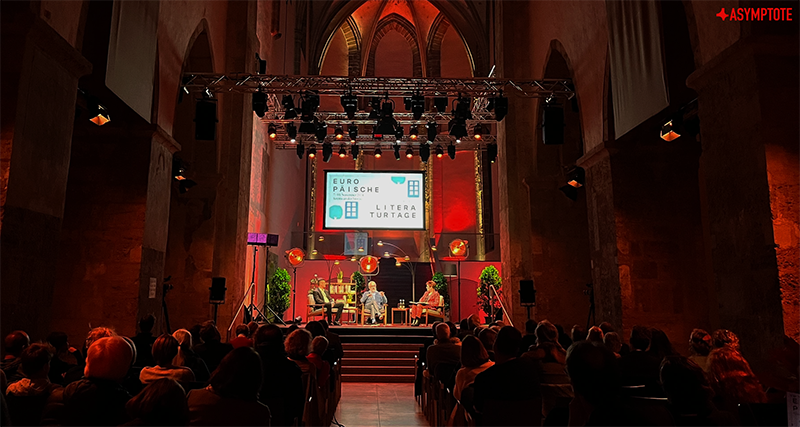Every year, European Literature Days transforms the Austrian city of Krens an der Donau into a lively, welcoming theatre for the celebration of contemporary writing, featuring readings, dialogues, workshops, and other cultural programming coordinated under a selected subject. The 2024 edition had the urban-rural complex as its central theme, and in the following dispatch, our editor-at-large MARGENTO reports on the events and conversations that took place.
Late last November, as I headed back to Krems-on-the-Danube to attend European Literature Days (Europäischen Literaturtage) for the second time, I realized that there was a need for me to both grasp the event’s larger context and to hone in on its details and nuances. This concurrence of conflicting scales requires starting this brief dispatch in media res, with a tour offered by the organizers on the third day of the festival. There, the guides Gregor Kremser and Max Dietrich took participants around town, unveiling multilayered histories and instances of reinscribing the past. The landmarks ranged from a park named for the anti-Nazi resistance fighter Therese Mahrer, to the only memorial (in Austria and Germany if not the world) dedicated to a WWII German military—ironically on the very eighty-sixth anniversary of the Reich’s genocidal pogrom.



